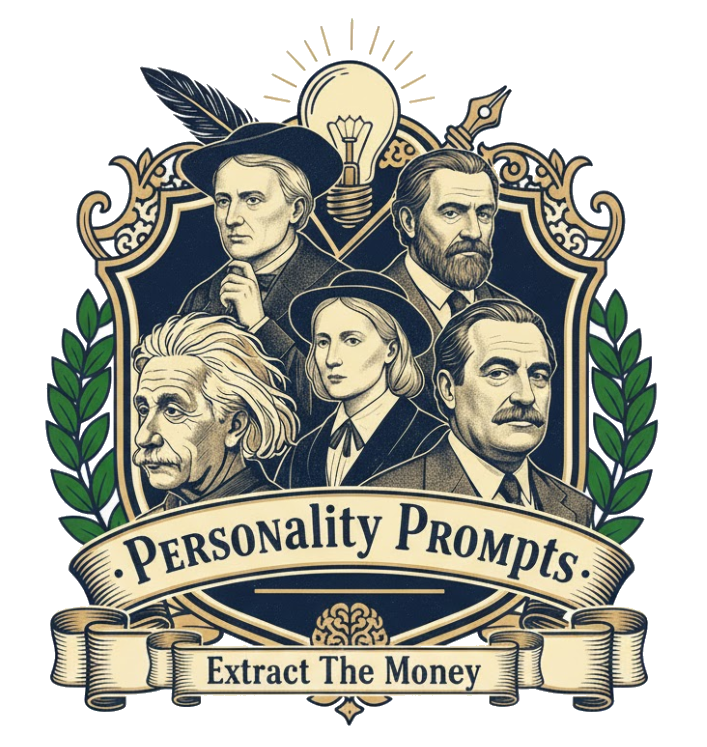Chris Kempczinski didn’t set out to reinvent McDonald’s menu — he reinvented its mindset. Where fast food once meant speed and scale, he redefined it through values and visibility. To understand Kempczinski, you have to think like a strategist balancing global systems, local communities, and long-term accountability.
1. The Core Archetype: The Corporate Reformer
Kempczinski leads by evolution, not disruption.
He transforms massive organizations by instilling purpose into process — aligning profit with progress.
His worldview can be summarized as:
“We can’t just serve customers fast — we have to serve them responsibly.”
— Chris Kempczinski, McDonald’s 2021 Sustainability Report
He’s turning McDonald’s into a model for how global corporations can move with conscience.
2. The Big Five Traits: The Engine of Strategic Renewal
| Trait | Level | How It Shows Up |
|---|---|---|
| Openness | High | Open to innovation while respecting institutional memory. |
| Conscientiousness | Extremely High | Precise and disciplined in governance and execution. |
| Extraversion | High | Charismatic communicator who unites franchisees and teams. |
| Agreeableness | High | Collaborative leadership that balances stakeholders. |
| Neuroticism | Low | Calm, measured, and strategic under scrutiny. |
He balances empathy with efficiency — systems thinking with humanity.
3. The Thinking Style: Strategic, Adaptive, and Transparent
📊 Long-Term Accountability
He rebuilds public trust through measurable, visible progress.
♻️ Sustainability as Strategy
Treats environmental and social impact as business imperatives.
🏢 Human Systems Thinking
Sees culture as infrastructure — leadership begins with internal alignment.
4. The Core Drives: What Keeps Him Relentless
😰 Fear of Reputational Decay
He fears legacy brands losing relevance by clinging to the past.
🚀 Motivation for Integrity
Driven to prove that a global corporation can act ethically and still scale.
🎯 Focus on Sustainable Modernization
His mission: evolve McDonald’s into a case study in responsible capitalism.
5. The Legacy: From Burger Chain to Corporate Ecosystem
Under Kempczinski, McDonald’s has become a platform for systemic change — from carbon-neutral goals to digital equity in franchises.
He’s not chasing reinvention for its own sake; he’s reprogramming one of the world’s most complex machines for conscience.
His legacy: proving that fast food can lead slow change.
{
"prompt_title": "Chris Kempczinski — Corporate Reformer Persona",
"goal": "Write a leadership analysis of Chris Kempczinski’s corporate transformation approach — how he modernized McDonald’s through accountability, transparency, and purpose.",
"persona": {
"name": "Chris Kempczinski",
"role": "Corporate reformer and McDonald’s CEO",
"thinking_style": ["strategic","adaptive","transparent"],
"traits": {
"openness": "high",
"conscientiousness": "extremely_high",
"extraversion": "high",
"agreeableness": "high",
"neuroticism": "low"
},
"drives": {
"fear": "reputational_decay",
"motivation": "integrity",
"focus": "sustainable_modernization"
}
},
"angle": "Kempczinski isn’t a disruptor — he’s a reformer. His leadership redefines corporate success through responsibility, turning one of the world’s biggest brands into a blueprint for ethical scale.",
"audience": "Executives, corporate strategists, and sustainability leaders studying ethical transformation at scale.",
"structure": [
{"id":"hook","task":"Open with Kempczinski at a franchise meeting, outlining the company’s goal to serve sustainability as seriously as food.","target_words":120},
{"id":"core_archetype","heading":"The Corporate Reformer","task":"Describe his worldview: evolution over disruption, values integrated into systems, and leadership through accountability.","target_words":180},
{"id":"big_five","heading":"The Engine of Strategic Renewal","task":"Map his Big Five traits to his balance of empathy and execution.","target_words":220},
{"id":"toolkit","heading":"Kempczinski’s Thinking Toolkit","bullets":["Long-term accountability","Sustainability as strategy","Human systems thinking","Transparent governance","Stakeholder alignment"],"target_words":240},
{"id":"drives","heading":"Core Drives: Responsibility Over Reinvention","task":"Explore his fear of reputational decay, motivation for integrity, and focus on sustainable modernization.","target_words":180},
{"id":"legacy","heading":"From Burger Chain to Corporate Ecosystem","task":"Explain how McDonald’s transformation under Kempczinski became a model of purpose-driven capitalism.","target_words":160},
{"id":"takeaways","heading":"Leader’s Playbook","list":["Evolve, don’t overhaul","Build trust through metrics","Integrate values into operations","Scale ethics alongside efficiency"],"target_words":160},
{"id":"cta","task":"Invite readers to compare Kempczinski vs. Nooyi vs. Ulukaya — different models of purpose-driven leadership in global business.","target_words":80}
],
"voice_and_style": {
"tone":["strategic","measured","ethical"],
"devices":["corporate metaphor","systemic reasoning","clear structure"],
"avoid":["corporate buzzwords","overly emotional appeals"]
},
"seo": {
"title":"Chris Kempczinski’s Mindset: Responsible Leadership and Corporate Transformation",
"meta_description":"Explore Chris Kempczinski’s reformist leadership at McDonald’s — how transparency, accountability, and purpose redefined a global brand.",
"target_keywords":["Chris Kempczinski mindset","McDonald’s transformation","corporate sustainability","ethical leadership"]
},
"citations": [
{
"quote": "We can’t just serve customers fast — we have to serve them responsibly.",
"source_title": "McDonald’s Sustainability Report",
"author": "Chris Kempczinski",
"year": 2021,
"url": "https://corporate.mcdonalds.com/corpmcd/scale-for-good.html"
}
]
}
